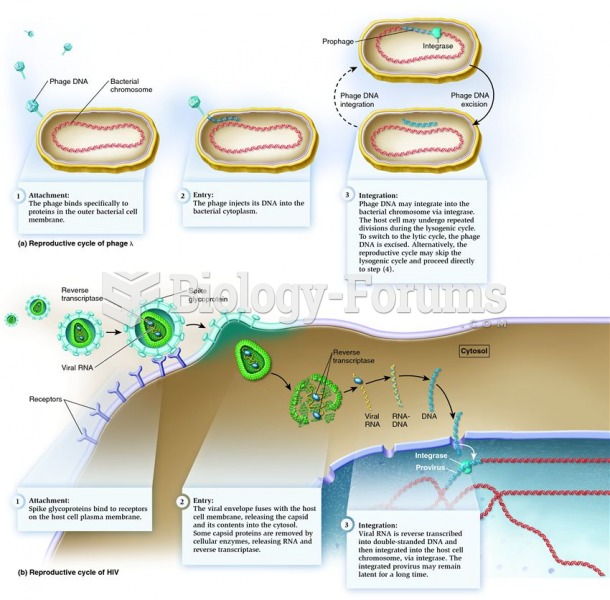This topic contains a solution. Click here to go to the answer
|
|
|
Did you know?
Bacteria have flourished on the earth for over three billion years. They were the first life forms on the planet.
Did you know?
Most women experience menopause in their 50s. However, in 1994, an Italian woman gave birth to a baby boy when she was 61 years old.
Did you know?
On average, the stomach produces 2 L of hydrochloric acid per day.
Did you know?
Medication errors are more common among seriously ill patients than with those with minor conditions.
Did you know?
Earwax has antimicrobial properties that reduce the viability of bacteria and fungus in the human ear.







